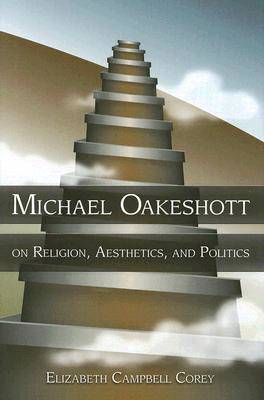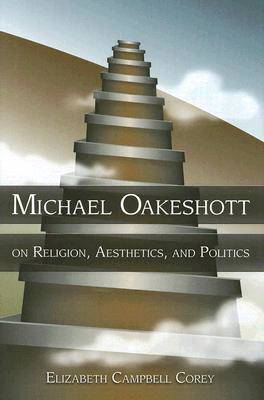
- Retrait gratuit dans votre magasin Club
- 7.000.000 titres dans notre catalogue
- Payer en toute sécurité
- Toujours un magasin près de chez vous
- Retrait gratuit dans votre magasin Club
- 7.000.0000 titres dans notre catalogue
- Payer en toute sécurité
- Toujours un magasin près de chez vous
88,95 €
+ 177 points
Description
For much of his career, British political philosopher Michael Oakeshott was identified with Margaret Thatcher's conservative policies. He has been called by some a guru to the Tories, while others have considered him one of the last proponents of British Idealism. Best known for such books as Experience and Its Modes and Rationalism in Politics, Oakeshott has been the subject of numerous studies, but always with an emphasis on his political thought.
Elizabeth Campbell Corey now makes the case that Oakeshott's moral and political philosophies are more informed by religious and aesthetic considerations than has previously been supposed. Hers is the first book-length study of this premise, arguing that Oakeshott's views on aesthetics, religion, and morality are intimately linked in a creative moral personality that underlies his political theorizing. Corey focuses on a wealth of early material from Oakeshott's career that has only recently been published, as well as his acclaimed "Tower of Babel" essays, to show that these works illuminate his thinking in ways that could not have been realized prior to their publication. She places Oakeshott squarely in the Augustinian tradition, citing his 1929 essay "Religion and the World," and then identifies his departure from it. She explores Oakeshott's recurring theme of "living one's life in the present"; examines his explicit discussions of religion, aesthetics, and morality; and then considers his political thought in light of this moral vision. She finally compares his idea of Rationalism to Eric Voegelin's concept ofGnosticism and considers both thinkers' treatment of Hobbes to delineate their philosophical differences. Through this insightful analysis, Corey shows Oakeshott to be not merely a political philosopher but a thinker with humanistic interests--one who throughout his life was deeply interested in the question of what it means to be human and was moved by art, poetry, and religion while recognizing the necessary evil of political arrangements in order for those activities to flourish. Her work is a major step in a reevaluation of Oakeshott, showing that his conservatism has been greatly misunderstood and that he is more properly regarded as a philosopher whose vision of the human condition, while oftentimes detached and skeptical, is also romantic and inspired.
Spécifications
Parties prenantes
- Auteur(s) :
- Editeur:
Contenu
- Nombre de pages :
- 272
- Langue:
- Anglais
- Collection :
Caractéristiques
- EAN:
- 9780826216403
- Date de parution :
- 01-06-06
- Format:
- Livre relié
- Format numérique:
- Genaaid
- Dimensions :
- 162 mm x 234 mm
- Poids :
- 562 g

Les avis
Nous publions uniquement les avis qui respectent les conditions requises. Consultez nos conditions pour les avis.






